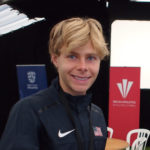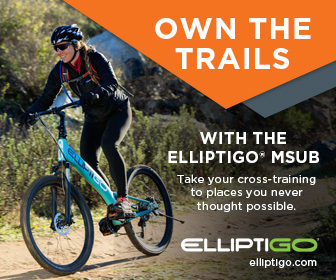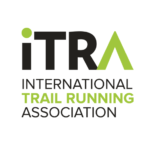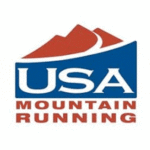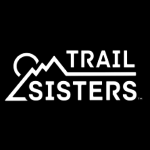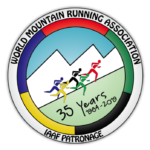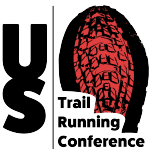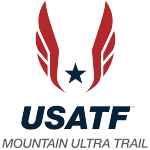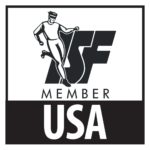
Elite ultrarunner Dakota Jones will be hosting the second edition of Footprints Running Camp from July 24, to 31, 2022. This camp combines environmental activism with trail running in the beautiful high alpine environment near Silverton, Colorado. In recent years, Jones has been outspoken about protecting the environment/trail systems and has used his platform as an elite athlete to spread his message.
In 2018, Jones biked over 500 miles to the Pikes Peak Marathon from his home in Durango, CO in an effort to reduce his carbon footprint in traveling to the race. Incredibly, Jones also won the race! This camp is similarly inspired to help engage the trail running community to become climate action leaders. Jones speaks on his inspiration behind the camp, “The best way to propel climate action is to find the skills and levers you have to communicate with people. Trail running is where I have a platform and where it made the most sense for me to speak on climate action. Making a camp that brings trail runners together and inspires collective climate action is the goal of the Footprints Running Camp. It’s all about bringing individuals together to take collection action.”
The Footprints Running Camp has been endorsed by several prominent figures in our sport including Kilian Jornet, who spoke about the camp, “If there could be only one running camp in the world, it should be Footprints. It’s a great example of how to make a positive impact on the environment and society through running.”
2022 Camp Format and Application
The Footprints Running Camp will follow much of the same format as its inaugural year last summer in 2021. Campers will be housed in the St. Paul Lodge, a remote mountain hut located at an altitude of 11,200 feet, above the nearby town of Silverton, CO, the host town for the famous Hardrock 100 trail race. This environment gives campers incredible access to the San Juan Mountains right outside the door and endless opportunities for trail running adventures. High-alpine lakes, wildflower meadows, historic mines, and mountain-top ridgelines are just some of the environmental features for campers to look forward to. In addition to the beautiful lodging, the food will also be exceptional. Real Athlete Diets (RAD Boulder) will provide high-quality vegetarian meals for all campers.
Daily activities include meals, runs/hikes, presentations from camp mentors who specialize in environmental or outdoor recreation, group activities, one-on-one camper to mentor sessions, trail work with the San Juan Mountains Association, and sunset walks. Read a full schedule of events.
One of the most engaging aspects of the camp is the mentorship system. Jones says about the camp mentors, “The one thing we did really well for the inaugural camp was creating a mentor system, so that each camper is paired one-on-one with a mentor. These mentors are college professors with PhDs, professional athletes, and business leaders. It’s an impressive cast of intelligent, motivated, hard-working people who have decided it’s worth their time to come dedicate a week to this camp. We try to pair mentors with experience closest to each camper’s project so they can be most useful. For each camper, having this expert they can refer to, ask questions of, and work with on their project from start to finish is really powerful.”

Photo: Footprints Running Camp
The 2022 camp mentors include:
- Len Necefer – PhD and assistant professor with joint appointments with the American Indian Studies program and the Udall center for Public Policy.
- Lydia Jennings – PhD in Soil Science, specializing in mine waste reclamation and research of laws to regulate mining on federal lands to which tribes have ancestral claims.
- Peter Newton – Assistant Professor in the Environmental Studies Program at the University of Colorado Boulder, CO. Specialist in food systems and the environment and TEDx speaker.
- Moira Hough – PhD in Arctic Ecology from the University of Arizona’s Department of Ecology and Evolutionary Biology. She focuses on understanding how arctic and alpine ecosystems respond to climate change and is currently researching the arctic peatlands in Northern Sweden.
- Ashley Carruth – 12th-grade humanities teacher and co-director of the San Juan Mountain SOLES, an outdoor education and leadership development organization for high school female-identifying youth.
- Connor Ryan – Activist for environmental stewardship, conservation and preservation of the Lakota culture through various mediums including trail running, poetry, photography, and filmmaking.
- Abigail Levene – Trail runner and activist for the importance of land easements in her home state of New Hampshire.
- Anna Grace – Cross country running coach and primary school teacher based in Missouri.
- Nate Bender – Montana-based trail runner who is currently working on dual master’s degrees at the University of Montana in Resource Conservation and Business Analytics.
- Dakota Jones – Accomplished professional trail runner, environmental steward and is currently working on his undergraduate in Mechanical Engineering, so he may better implement environmental solutions.
The application period for the 2022 camp runs through April 1, 2022 and will remain open on a waitlist basis until mid-May. Prospective campers submit an online application where they detail their ideas for a project that addresses a problem in their community, generates personal connection, and relates to climate change. The cost for the camp is $1,500 and includes food, lodging, instruction, materials, and transportation during the camp. Campers can also apply for full or partial scholarships. Apply on the camp website.
Jones expressed his goals for this year’s camp and the future of Footprints Running Camps, “Overall, we want campers to have a fun experience and be inspired by what they can do, by what others are doing and to come away feeling prepared to take action on climate change. We want to provide them with the most readiness to be effective climate action leaders in their communities. Our second objective is the action component. We want to set specific actions and metrics and have them be able to go home and follow a timeline they created at camp and achieve these actions. Once we feel we have the camp format dialed in, we hope to host more camps and eventually have a camp in Europe.”
Watch a short documentary on the 2021 Footprints Running Camp and read about the experiences from Footprints camper, Paul Edlund.

